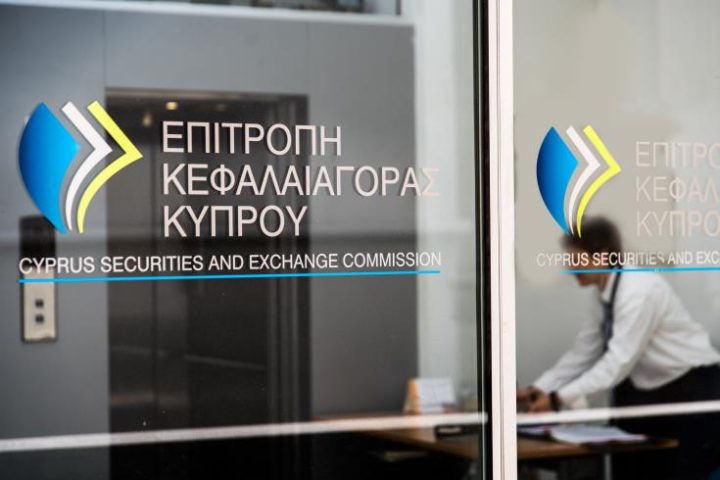By Demetra Kalogerou
The recent crisis in the health and economy sector caused instability in the international financial markets, which in turn boosted markets such as forex, which prior to the COVID-19 pandemic had been experiencing a prolonged period of low volatility.
At the same time, certain financial instruments had low liquidity, especially those whose underlying instruments were stock market indices.
The low liquidity was mainly due to the trading halts that were implemented by the European and American stock markets, as a measure to limit the volatility of prices.
As for the Contracts for Difference (CFDs) market, for certain financial instruments such as CFDs in indices and cargo, the spreads doubled due to the low liquidity while CFDs in FX, there were no significant fluctuations.
Regarding the bonds market, prices came under great pressure while the volumes of transactions dropped to very low levels which resulted in low liquidity.
Turnover increase
Amid this unstable environment, Cyprus Investment Firms (CIFs) were forced to implement the work-from-home model, testing the resilience of their technological infrastructure and durability of their systems in practice when their turnover was presenting a significant increase.
Those operating in the foreign exchange market had to anticipate high intraday trading, often increased transaction volumes, while they found themselves with increased obligations in the provision of investment services.
In compliance with a call by the Cyprus Securities and Exchange Commission, they were obliged to constantly monitor the financial impact of the spread of coronavirus on their activities and make provisions for potential risks while informing their clients accordingly.
No problems arose in the CSE and therefore trading continued without interruption.
Furthermore, certificates were issued to CSE members that allowed them to have remote access to the CSE’s systems and its central depositary.
The impact on equity securities
All listed companies were called to inform the investing public about the impact COVID-19 had on their business activity.
There was an immediate impact on the turnover of listed companies in the tourism and retail trade sector, as their operations were suspended because of the government decrees to limit the spread of the pandemic.
The turnover of listed companies from other sectors was affected indirectly.
In extent, there was an impact on the equity securities of listed companies, as well as the market as a whole.
The CSE General Index recorded a 23.23% decline in March-June 2020, while the CSE Main Market Index dropped 27.75%.
The Hotels Index was reduced by 13% in the same period and the FTSE/CySE Index recorded a 24% decline.
The shares of Bank of Cyprus and Hellenic Bank between March-June 2020 declined by 46.40% and 24.88% respectively.
| Index Changes – March / June 2020 | |||||
| INDEX | March- June | March | April | May | June |
| FTSE/CySE 20 | -24.02 | -24.90 | 1.86 | -3.62 | 3.06 |
| MAIN MARKET INDEX | -27.75 | -27.85 | 1.53 | -4.46 | 3.22 |
| INVESTMENT FIRMS INDEX | -11.08 | -8.54 | -3.75 | 1.20 | -0.18 |
| CSE GENERAL INDEX | -23.23 | -24.34 | 1.83 | -3.29 | 3.03 |
| HOTELS INDEX | -14.43 | -24.96 | 7.03 | 3.39 | 3.05 |
| ALTERNATIVE MARKET INDEX | -13.00 | -17.17 | 3.44 | -0.72 | 2.28 |
| FTSE Med | -18.43 | -24.95 | 15.06 | 0.26 | -5.78 |
| BOCH | -46.40 | -41.37 | -3.14 | -15.34 | 11.50 |
| HB | -24.88 | -27.54 | 7.33 | -4.04 | 0.65 |
Liquidity maintenance
UCITS and AIF managers closely monitored the developments surrounding the pandemic on a continuous basis, while also investigating any possible effects it may have on their investment funds.
Throughout the pandemic, they did not face any liquidity issues, nor did the need arise for them to consider using special tools to manage their liquidity.
This is in part due to the fact that many AIF investment funds have long lock-up periods (3-5 years) and/or long notice periods for the redemption of shares (6 months-one year), because of their investments in assets that are by nature non-liquid.
Furthermore, for a significant number of investment funds that invest in assets that are by nature more liquid, i.e. bonds and securities, in addition to the liquidity potential that exists in these markets, they maintain sufficient investments in cash or even cash equivalents to cover any potential increase in acquisition flows.
Also, most UCITS invest in securities with large capitalisation and therefore high liquidity.
The focus on investor protection
Over the past months, CySEC’s priority has been to ensure the smooth operation of the securities market and by extent the protection of investors, especially at a time when the environment was particularly conducive to unscrupulous activity while the interest shown by investors for high-risk speculative financial instruments remained high.
To this end, we paid special emphasis to provide investors with continuous updates on all the developments surrounding the investment services sector, through notifications and announcements that were published on CySEC’s website.
However, it takes more than just a sound supervisory framework to protect investors; it is also down to each investor’s ability to assess the risks from various investment options.
Before proceeding with any investment, investors must check that the company they are negotiating with is licensed by CySEC to provide investment services in the Republic of Cyprus.
If the company is not licensed or regulated, it likely does not comply with investor protection regulations and therefore the public may not have access to complaint procedures or compensation systems.
Additionally, investors must be particularly careful if they feel they are being pressured to make quick decisions on investments, if they are offered returns on their investment that sound unrealistic or if they receive promotional messages concerning investment products and services, without any reference to the risk of losing money.
They must also beware of individuals who falsely claim to represent CySEC, asking for personal or financial details.
CySEC has issued announcements informing the public that it never contacts investors or the broader public asking for personal, financial, or other information.
The securities market is a key driver of economic growth, especially in times of crisis, provided of course that it is accompanied by the right conditions, such as ensuring the sector’s credibility.
Therefore, it is very important that CySEC continues to have all the necessary powers at its disposal and be reinforced with further necessary resources so that it is in a position to continue to successfully live up to the important role it has to play as a Supervisory Authority.
The writer is chairwoman of the Cyprus Securities and Exchange Commission










